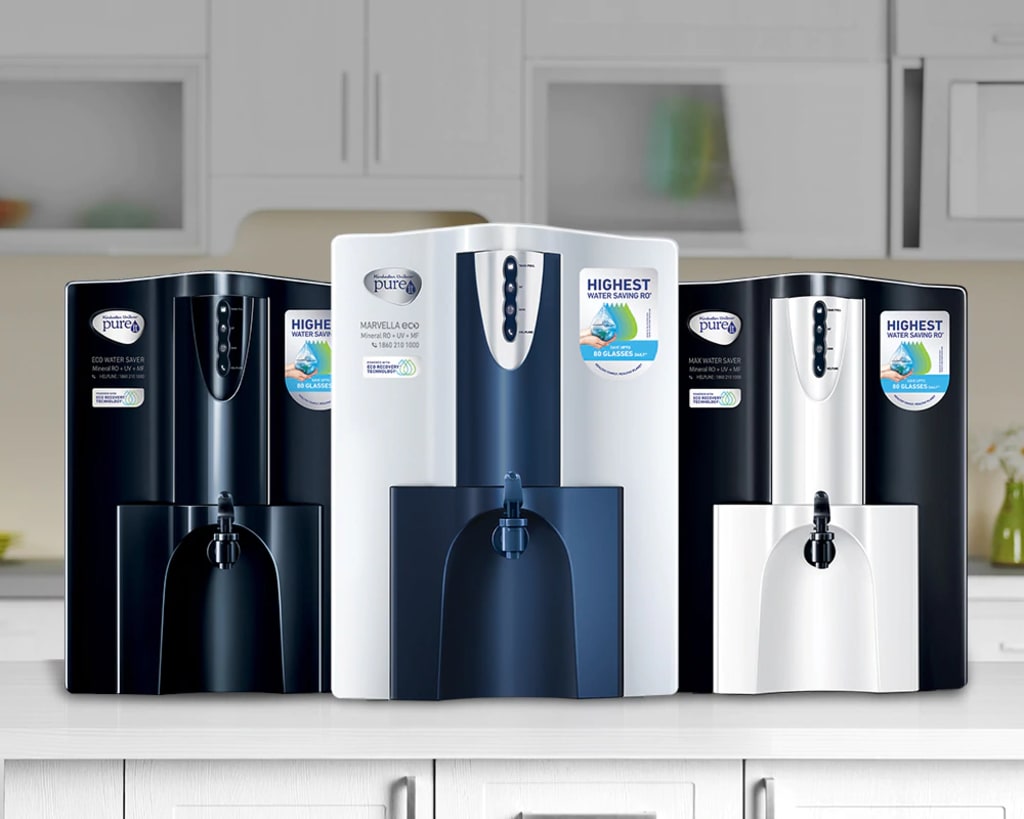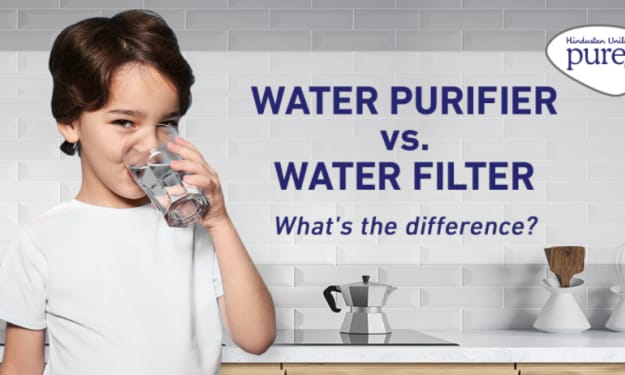Does the UF + UV Water Purifer cotrol TDS?
UF +UV Water Purifier Control TDS?

Have you ever thought what is the need for a water purifier home? Clean and pure drinking water is essential for humans, but not every person has access to it. Water is scarce in many parts of India, and people in those regions have to depend on groundwater or water tankers. The quality from such sources might not be good for humans as they sometimes contain contaminants like pesticides, heavy metals, bacteria, cysts, and high TDS or Total Dissolved Solids. Hence, more people nowadays are trusting water purifiers for drinking.
Before you decide on what kind of purifier you must settle for to purify the high level of TDS, let’s check out various types of water purifiers:
1. Gravity-Based Water Purifier
2. UV Water Purifier
3. RO Water Purifier
Types of Water Purifier
Features
Gravity-Based Water Purifier
It uses water pressure for filtration
It is non-electric
It is portable
UV Water Purifier
It uses ultraviolet rays for purification
It purifies water fast
It doesn’t remove sterilized microorganisms, dissolved organics, and inorganic particles
RO Water Purifier
It is most effective for tap water with a high TDS level
It purifies water fast
It can help to make hard water soft
What is TDS:
The amount of dissolved organic or inorganic matter in the water is known as TDS or Total dissolved solids. It can include calcium, magnesium, sodium, potassium, nitrates, carbonates, chloride, bicarbonates, sulfates, and other organic impurities like leaves, silt, and plankton. In some heavily polluted areas, the water also includes toxic ions from heavy metals like lead, cadmium, nitrate, and arsenic.
What are the major sources of TDS?
The mixture of various TDS matter in the water depends mostly on the composition of rocks/soils in the area, industries, sewage/wastewater discharge, quality of the river water, air pollution from automobiles and industries, uses of chemicals like fertilizers and pesticides in agricultural runoffs, and many other factors.
Is TDS harmful?
High TDS doesn’t necessarily means it’s unhealthy. But high TDS levels means that they are frequently accompanied by the concentration of other substances, mostly heavy metals like arsenic, chromium, mercury, cadmium, lead, and few other impurities which are dangerous for human health.
But, at the same time, if you live in an area where there is no industrial waste discharged into the soil or even water bodies and there is no use of synthetic fertilizers or pesticides in the agricultural farms, then the water which is available in such areas is normally healthy.
It just has to be useful minerals and bicarbonates in the water that are not harmful. The human body can handle such natural mineral water.
High TDS can be an issue when toxic chemicals are present in the water source, and such water becomes unpalatable.
UV rays have always been used as a germicidal treatment for impure water. Its low-pressure mercury lamps will generate UV light which is an effective means to kill bacteria and viruses in the water. With the adsorption of UV light, the DNA and proteins in the microbial cell result in the inactive microorganisms.
The advances in UV lamp technology have made possible the production of special lamps which can generate both 185 nm and 254 nm UV light. This combination is also important for the photo-oxidation of organic compounds.
However, because RO purifiers have a negative impact that they can rip the water off from all the essential minerals. Many people prefer opting for UV or UF purifiers. Although UV water purifiers can help kill bacteria and viruses, and UF blocks the bacteria and viruses that remain in the UF hollow membrane; they are not suitable for water with high TDS levels. Only an RO water filter for home can remove heavy metals, pollutants, and other impurities, making the water drinkable.





Comments
There are no comments for this story
Be the first to respond and start the conversation.